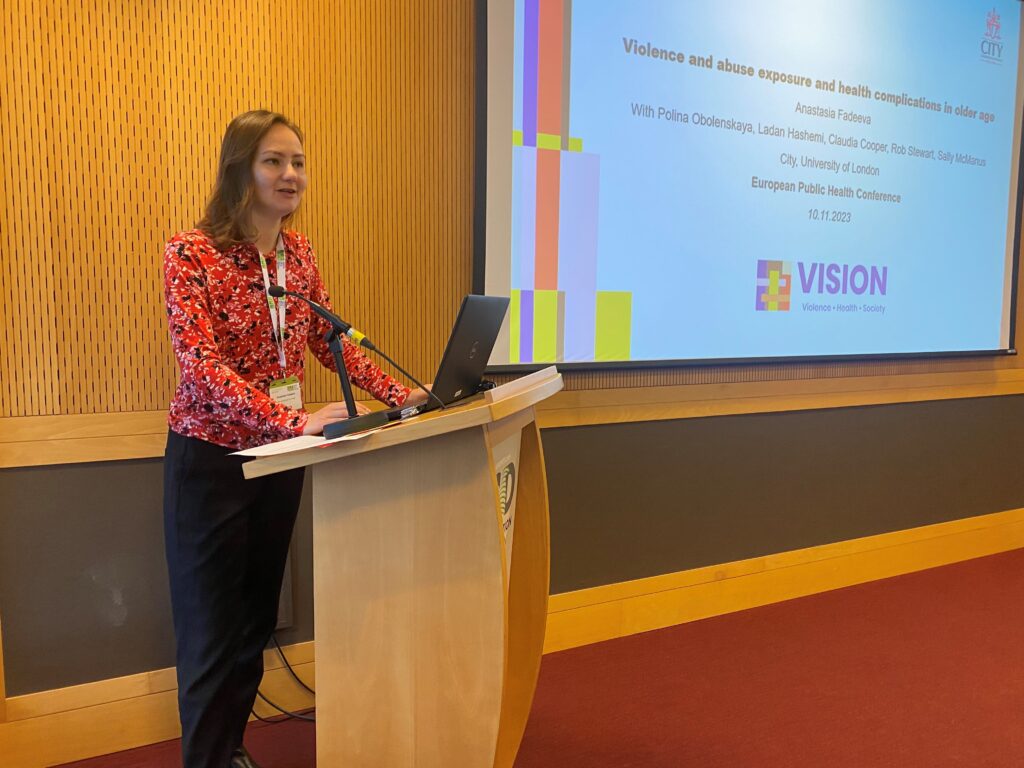
We’re delighted that one of VISION’s core researchers, Dr Anastasia Fadeeva, chaired a symposium at the upcoming European Public Health Association (EUPHA) conference in November in Dublin.
The workshop, Responding to violence and abuse across the life-course, presented a range of analyses – drawing on data from New Zealand, Germany and the UK – that addressed the ways in which violence and abuse manifest at different life stages, including in childhood, among working-age adults, and in later life.
The presentations highlighted differences across the life course, as well as commonalities. They demonstrated the long-term, even life long, shadow that violence and abuse can cast over people’s health, and provided evidence of the extensive costs for society. Health impacts were shown to be broad, not only anxiety and depression, but substance dependence, chronic physical health conditions, and related health risks such as obesity.
This symposium comprised four presentations that each considered violence and abuse prevalent at a particular stage of life, and provided evidence to inform the sensitive tailoring of responses from and for families, schools, health and social services, workplace human resource employees, and care and residential homes.

For further information on the conference, please see: 16th European Public Health Conference (ephconference.eu)
Or contact Anastasia at anastasia.fadeeva@city.ac.uk
Photo by Priscilla Du Preez ?? on Unsplash